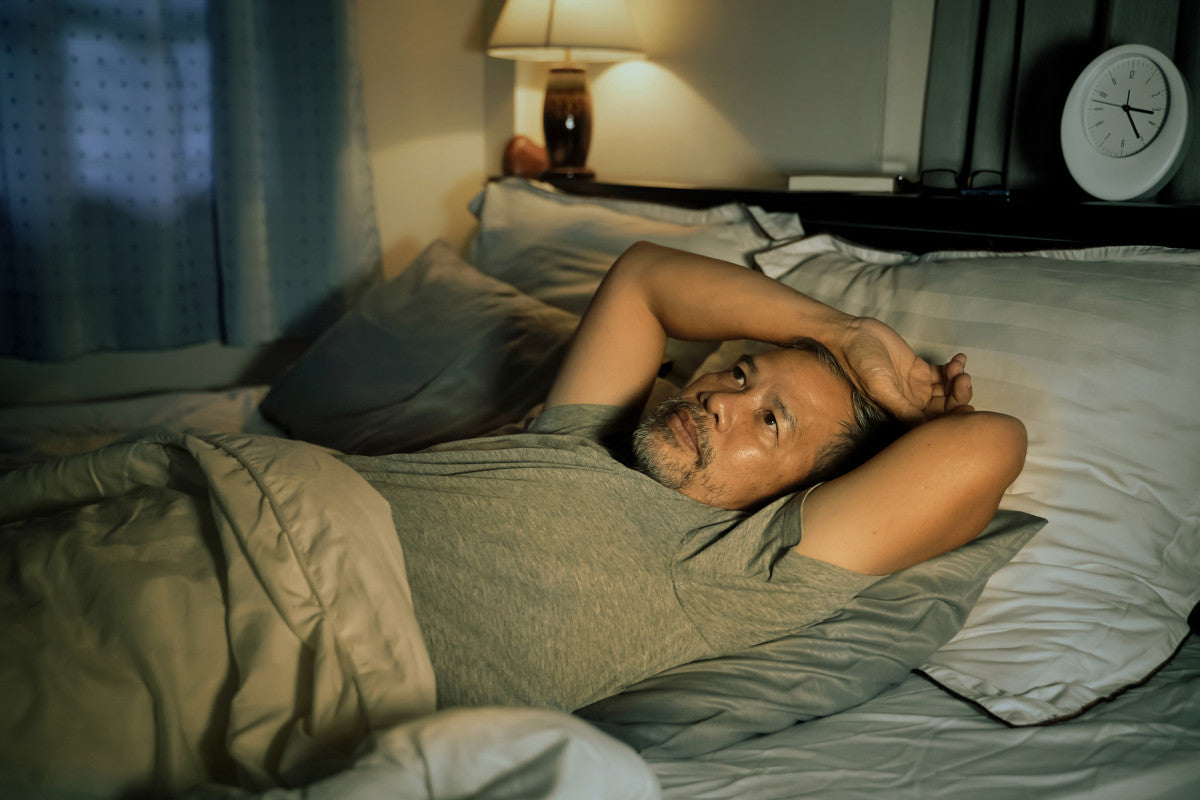Your Cart is Empty
FREE SHIPPING OVER $45 & RETURNLESS REFUNDS

If you're over 50, you're probably no stranger to the struggle of getting a good night’s sleep. It’s like your bed is suddenly a battlefield, and you’re stuck in the trenches, trying to find a comfy spot. You toss, you turn, you get up for the bathroom 3 times, and still wake up feeling like you didn’t sleep at all.
Sound familiar? Yep, me too.
But why does sleep get so complicated after 50, and more importantly—what can we do about it? Let’s dive into the common sleep struggles that come with age and what we can do to finally get some real rest.
Now, I’m not saying you’re officially old (don’t worry, I’m right there with you), but let's face it—sleep is just differentonce you hit that golden 50+ age. Here’s what we’re all dealing with:
Let’s be honest, most of us don’t sleep like we did when we were younger. Our bodies have a few more creaks and cracks than they used to—and those aches and pains don’t exactly make it easy to fall asleep or stay asleep. Here’s how joint and muscle discomfort mess with your sleep:
When your body’s screaming “help,” it’s no wonder sleep feels impossible.
So, what can we do to get some decent sleep without turning to a bottle of sleeping pills? Here are some tips that have worked for me—and for a lot of people I know:
Stick to a Sleep Schedule
Your body loves routine. Seriously, it does. Going to bed and waking up at the same time every day can help train your body to sleep better. Sure, it’s tough to do when you’ve got Netflix calling your name, but a little consistency goes a long way.
Make Your Bedroom Your Sleep Sanctuary
If your room’s too hot, too cold, or too bright, you’re probably not getting the best sleep. Aim for a cool, dark, and quiet environment (blackout curtains are a lifesaver). And make sure your bed and pillows are comfy—trust me, you’ll thank me later.
Stretching Before Bed Can Help
I know, I know, stretching sounds like something your grandma told you to do. But here’s the thing: stretching helps loosen up those muscles and joints before bed. I try to spend 10-15 minutes stretching—nothing too crazy, just a little yoga and gentle movements to help my body unwind.
Watch What You Drink (and When)
We all know caffeine’s a no-go after noon (unless you’re trying to become an insomniac). But what about alcohol? Sure, it might help you relax at first, but it messes with the quality of your sleep later. So, cut back on both if you can.
Try Heat or Ice for Pain
A heating pad can work wonders on stiff muscles and joints, while ice is great for inflammation. Depending on what’s bothering you, heat or ice therapy before bed can help you relax and get comfortable enough to fall asleep.
Here’s the good news: There’s a natural solution to help ease those joint, nerve, and muscle aches that make sleep feel impossible. Outback Pain Cream can be a game-changer.
We’ve created a product that’s all about targeting inflammation and relieving discomfort so you can sleep more soundly. Just apply a bit of Outback before bed, and it’ll help soothe those aches and pains, making it easier to drift off and stay asleep.
Plus, it’s made with natural ingredients, so you won’t have to worry about any weird chemicals or harsh side effects—just pure relief.
Sleep might feel like an uphill battle after 50, but you don’t have to face it alone. With a few simple changes to your routine, some stretching, and a little help from Outback 😉, you’ll be back to getting the rest you deserve in no time.
So go ahead—catch those ZZZs and wake up feeling like you’ve actually rested for once. Trust me, you earned it.
Luis Rendon
March 19, 2025
GRACIAS POR LOS TIPS!🙏